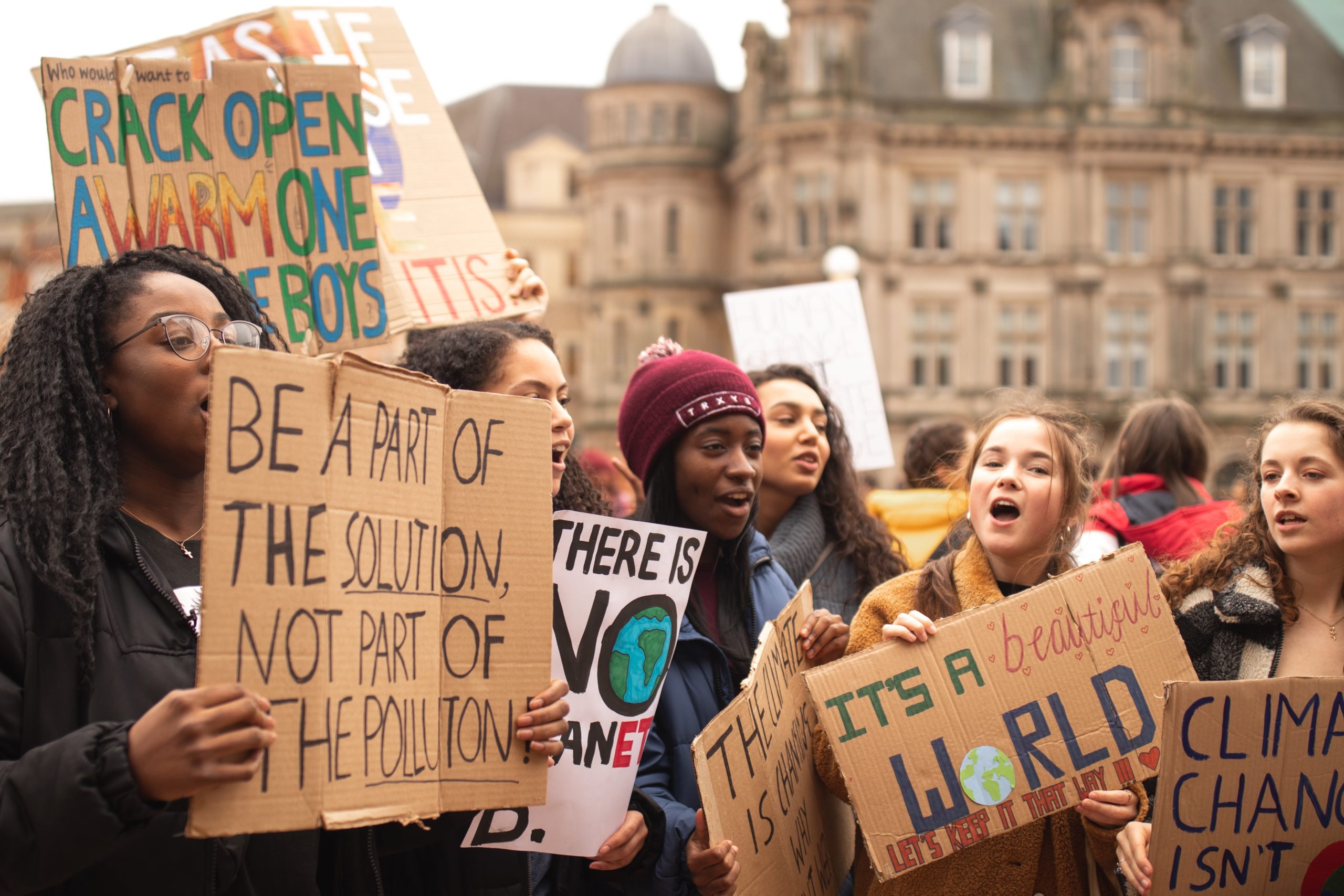When It Comes to Equality, We Have to Fight for Climate Equity Too

When it comes to combating the widening inequality gap, we rarely think about environmental issues as part of the disparate impact to people of color and frontline communities. This goes far beyond affordability of air conditioning (or heating) concerns. Think about pollution. San Bernardino County in California has consistently poor air quality that creates chronic health issues, especially for the children growing up in these communities. While the world talks about climate change in terms of very broad impacts, we often overlook that it can impact communities very differently.
The Climate Equity Bill introduced by Vice Presidential candidate Kamala Harris and Representative Alexandria Ocasio-Cortez aims to address these issues by bringing in representation from frontline communities when crafting climate policy and legislation.
It Starts with Environmental Justice
Imagine if you didn’t have clean drinking water at home. Your family constantly breathes polluted air and has to worry about a toxic waste facility nearby. Sounds pretty grueling, but most people probably don’t feel this happens in the United States. Well, it does for hundreds of communities. Communities of color have higher exposure rates to air pollution than their white, non-Hispanic counterparts. A Yale University study found that non-Hispanic whites had the lowest exposure rates for 11 of the 14 pollutants monitored in the study. Moreover, a report titled “Toxic Waste and Race at Twenty” reviewed data collected over a 20-year time period and found that more than half of the people who live within 1.86 miles of toxic waste facilities in the United States are people of color.
This is hard to imagine, especially in a country like the United States. This is exactly why representation is such an important factor when it comes to policy making. The Climate Equity Bill brings the people from these communities to the table so we know their experiences, incorporate their needs, and create more meaningful policy decisions that will help all communities and, more importantly, start addressing the real environmental problems of the frontline communities.
As part of the Climate Equity Bill, Senator Harris and Representative Ocasio-Cortez have proposed an independent Office of Climate and Environmental Justice Accountability to represent the views of frontline communities in policymaking. This Office will conduct research on issues and trends in frontline communities, measure the costs of regulations on frontline communities, and monitor government compliance. For the Office, people and allies from the frontline communities will represent these concerns through the formation of a Board of Advisors. With this first hand experience present, this Board will be a powerful force in creating climate equality and justice.
Holding Our Leaders Accountable
To make this real and meaningful, the Climate Equity Bill also proposes accountability measures for Congress and the Executive Branch, including an “equity score” on any climate legislation. This score will estimate the impact of any policy frontline communities as a validation to ensure people of color, low wage communities, and the elderly are not disproportionately impacted by the legislation. For the Executive Branch, any rules and regulations that would have a significant impact on frontline communities would go through an additional layer of review of compliance with environmental policies regulations. Similarly, the Climate Equity Bill also requires that federal grants for investments on the planet also go through a review to ensure that frontline communities would benefit from the investments made through a grant.
While some will argue about additional bureaucratic “red tape” and costs, this bill actually creates tangible benefits, not just environmentally, but also economically. Changes in our atmospheric conditions could slash up to 10% of the GDP by 2100, more than double the losses of the Great Recession. However, the policies proposed by Senator Harris and Representative Ocasio-Cortez are designed to achieve a carbon-neutral economy by 2050, which would stem the GDP losses. In fact, they may even help grow GDP through the creation of new, green jobs and facilitating a healthier population that would reduce healthcare costs. Likewise, Senator Harris has called for a $10 trillion increase in spending over a decade as well as a price on carbon, with a dividend that is returned directly to households. That’s a strong incentive for people to be green!
The past few months have been incredible as we have seen people join together to make social and racial justice a reality. The tragic deaths of George Flyod, Breonna Taylor, and Ahmaud Arbery are, sadly, just a handful of incidents but have helped sparked understanding on why Black Lives Matter, the poor level of diversity and inclusion in law and business, and the broad and deep need for equality in every facet of our lives. Let us make sure we include environmental issues as part of transformation to social justice.
What You Can Do To Help
Help empower communities with better representation by supporting organizations like Earth Guardians, which trains diverse youth to become effective leaders in environmental and social justice. Donate to Earth Guardians and help shape the next generation of leaders.
Spread the word about innovative technologies that are designed to help address the challenges faced by vulnerable populations, such as the flood-mapping system created by Cloud to Street. Cloud to Street’s flood monitoring technology helps city planners and natural disaster relief agencies to better understand flood risks so that at-risk communities can be better protected. Help raise awareness about Cloud to Street so that more communities, including yours, can benefit from its cutting-edge technology.
Finally, with elections coming up in November, do some research to learn more about the policies proposed by your local, state, and federal representatives that can affect our planet and our communities.
Creating a healthier, more equal, and inclusive future for our planet is a collective effort, and each of us has the power to make an impact – including you!


Leave a Reply